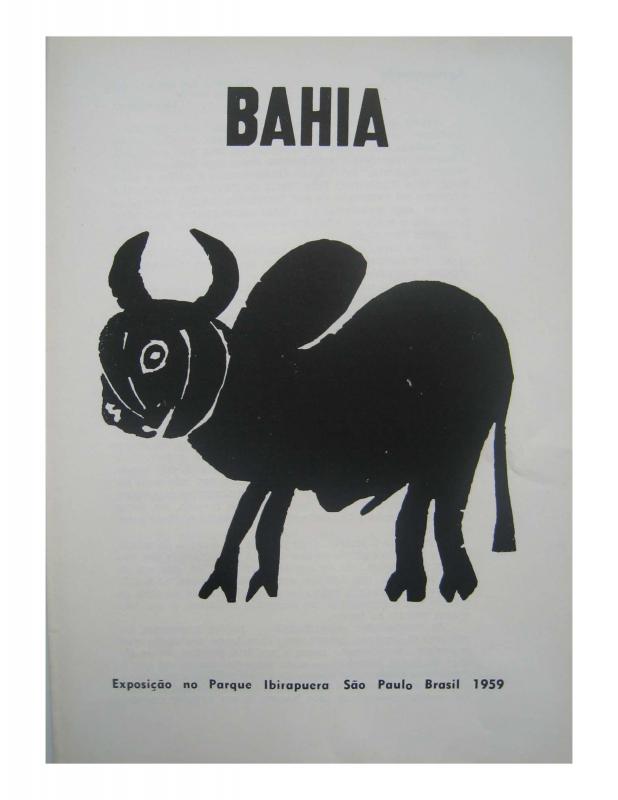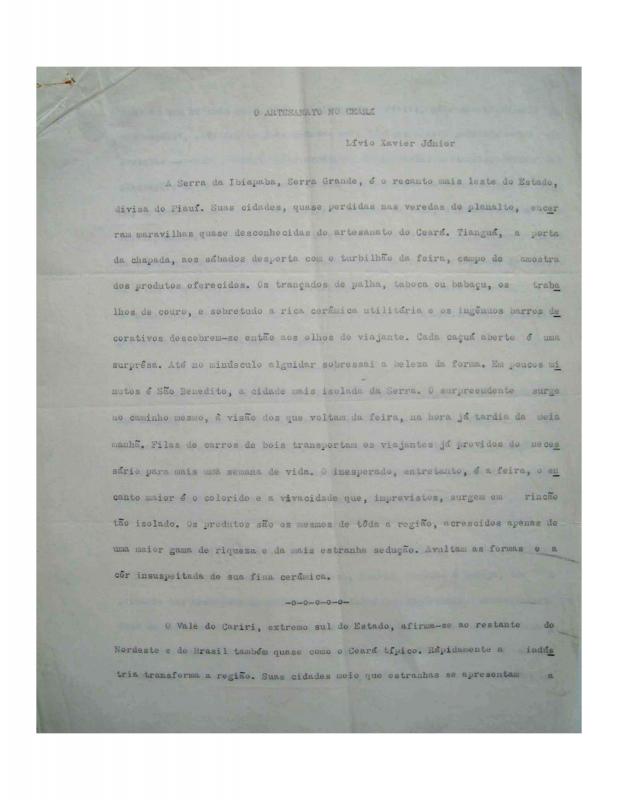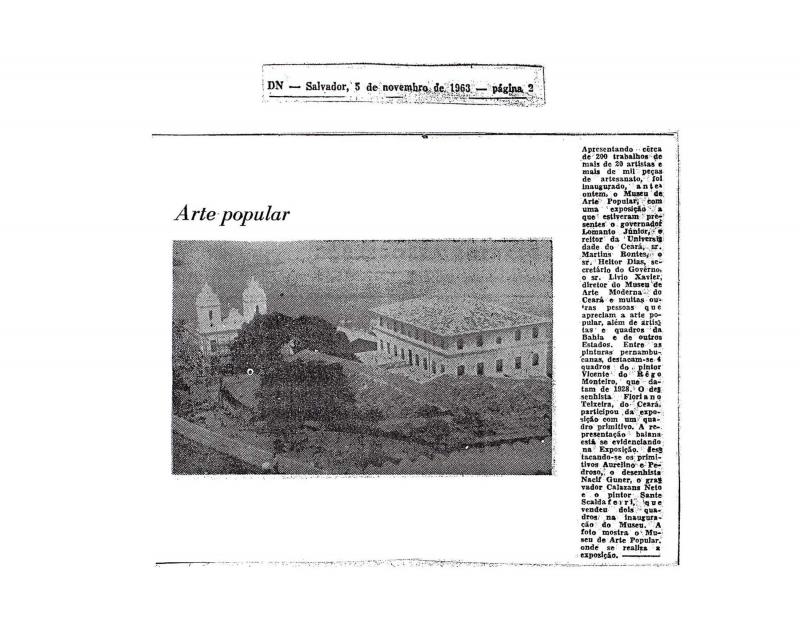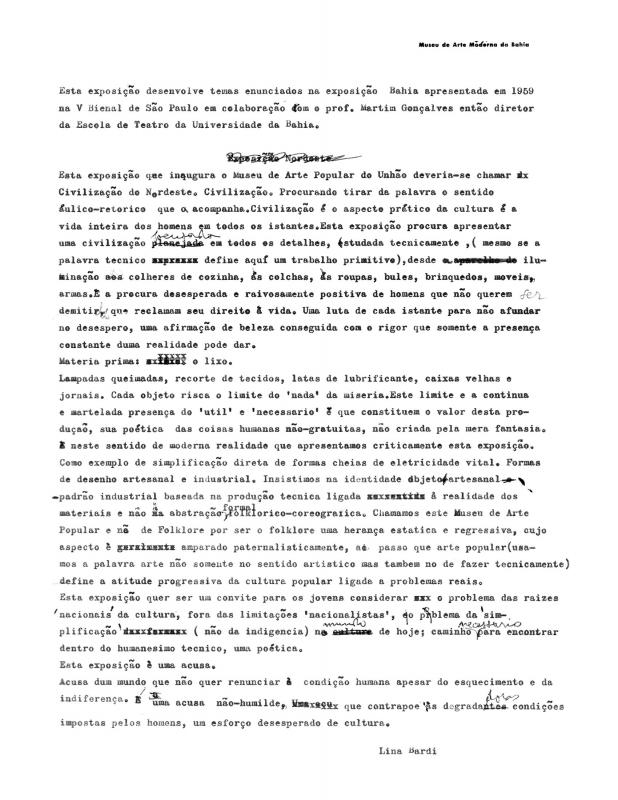In this article the architect Bruno Zevi agrees with his colleague Lina Bo Bardi, who believes that Brazilian folk art should be supported and promoted. He also mentions the censorship of the exhibition Civilização do Nordeste at the Galleria d’Arte Moderna di Roma, on orders from the Brazilian embassy in Italy. Bo Bardi had presented this same exhibition (prior to the military coup in 1964) in Bahia (Museu do Unhão, 1963). After the breakdown of democracy, the Italian-born architect resigned from her position as director of the museum, an institution devoted to the black art and indigenous expression of the northern region of the country. Decades later, she was able to settle the moral score over what happened during her tenure in Bahia (1959–64) in her book: Anos de grossura: o design no impasse [Vulgar Years: Design at a Dead End] (São Paulo: Instituto Lina Bo e Pietro Maria Bardi, 1994).
The Italian architect Lina Bo Bardi [née, Achillina Bo, 1914–92] moved to northeastern Brazil (1959–64) to support and promote the (traditional) culture in that part of the country. The military coup (1964–85) wiped out all the practical and intellectual advances that had taken her a decade to accomplish.
Lina Bo Bardi did a considerable amount of research into the origins of the art, handcrafts, and what preceded those handcrafts in the northeastern part of the country. The articles in this selection are: by Jorge Amado “Exposição Bahia” (1959) [see the ICAA digital archive (doc. no. 1110903)]; and by Lívio Xavier “O artesanato no Ceará” (1963) (doc. no. 1110900); among the most important articles, there are also some written by Flávio Motta (1970), Abelardo Hora (1963), Celso Furtado (1967), Glauber Rocha (1964), Paulo Gil Soares (1964), and Ariano Suassuna (1963). As complementary reading, see the essay by Lina Bo Bardi “Arte popular” (doc. no. 1110862).
Lina Bo Bardi lived in Salvador (Bahia) from 1959 to 1964, where she was the director of the MAMB (Museu de Arte Moderna da Bahia). As had happened at the MASP in São Paulo—where she was in charge of program planning and teaching activities—her work at the MAMB consisted of organizing art history exhibitions and shows for contemporary and international artists representing various movements, and re-evaluating the traditional culture of the Brazilian “northeast.” Bo Bardi organized regular classes on art, music, cinema and theater, and arranged for design and local handcraft workshops. She was a dynamic force in the art field in that part of the country, and helped local artists to make contact with well-known figures in the contemporary arts community. Some years later, at the opening exhibition at the MAP (Museu de Arte Popular), which was built on her initiative at the Solar do Unhão (Salvador, 1963), she explored the ideas that were expressed at the Bahia exhibition that was part of the V Bienal de São Paulo (1959). In her opinion, the exhibition should have been called Civilização do Nordeste; she explained that, in this context, the word ‘civilization’ was understood to mean “the whole of human life” (doc. no. 1110868).




